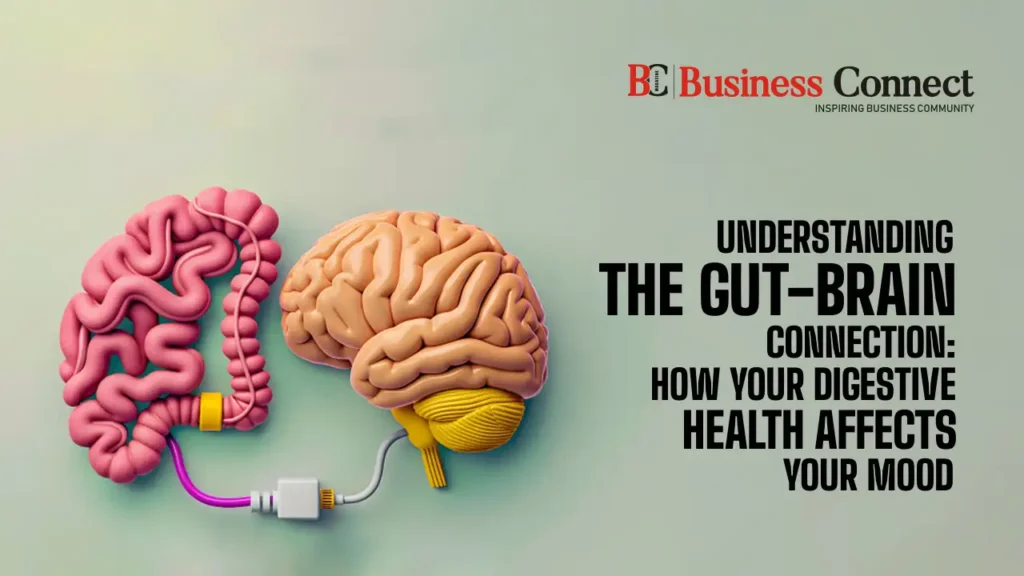Understanding the Gut-Brain Connection: How Your Digestive Health Affects Your Mood
The brain is considered the first suspect when it comes to mood swings and mental states. The trillions of microbes living in our gut significantly affect our daily emotions and overall mental health in the long term. The key reason is that our brain and microbiome constantly communicate through something called the gut-brain axis. By understanding the gut-brain connection, you can improve your mental health in the right way.
Understanding the Gut-Brain Connection: Basic Knowledge
The brain is a significant part of the body that is connected to all the body parts. However, the maximum exchange of information the brain does with the stomach. The stomach and brain are connected physically and biochemically in different ways and impact each other’s health. A healthy gut shows mental well-being and vice versa.
Apart from the brain, most nerve cells are in our stomach. Hence, this fosters the communication between these two crucial body organs. Under normal conditions, our gut and brain depend on each other for maintaining homeostasis in the body through their intricate communication network.
The Gut-Brain Connection: How They Are Connected
The gut and brain are connected through the gut-brain axis on different levels.
Physical Connection: The brain has 100 billion neurons, the fundamental units of the brain, as well as the nervous system, also known as the nerve cells. Similarly, the gut holds more than 500 neurons, they are connected to the brain. The vagus nerve is the most important nerve which connects the gut to the brain. It is bidirectional, meaning it sends and gets signals to and from the gut and the brain.
Immune System Connection: As we know, gut microbes of the digestive system affect your overall immune system by managing what goes through the stomach. When your immune system gets stressed, it causes inflammation connected to several brain disorders like depression and Alzheimer’s.
Biochemical Connection: The gut-brain connection also includes a neurotransmitter-based biochemical link. Serotonin is a neurotransmitter that fosters happiness in your body and brain. Furthermore, the microbes in the gut are responsible for producing different other chemicals that affect brain health.
Primary Steps to Improve Gut Health for Better Mental well-being
- Include dietary fibres and probiotic foods like yoghurt and kimchi in your diet to promote gut balance. Consider a diet with less processed foods and sugar to reduce inflammation and improve gut health.
- Regular exercise is a great way to enhance the composition of the gut microbiota, resulting in increased levels of healthy bacteria. Physical activities further have anti-inflammatory and mood-enhancing effects that boost your mental health.
- Stress affects gut health a lot by disturbing the balance of good and bad bacteria, which results in inflammation. Mindfulness meditation and yoga are some of the ways to reduce stress and gut inflammation.
- Having a sound sleep can help promote physical health and keep your gut microbiome healthy.
- Sometimes antibiotics are given for medical reasons, but frequent use of them could kill off harmful bacteria along with the good ones that may cause dysbiosis.
Bottom Line
The solid gut-brain connection demonstrates the undeniable impact that gut health has on brain health. Understanding the gut-brain connection brings innovative ways to manage and enhance mental health through dietary and lifestyle changes. When you think of focusing on your gut health, you move towards better digestive health and mental well-being.
Frequently Asked Questions
What is the gut-brain connection?
The gut-brain axis, or connection, is a network that links the central nervous system with the enteric nervous system. It includes neural, hormonal, and immunological singles that enable the gut and brain to communicate and impact each other’s functions.
How does your digestive health affect your mood?
Digestive health affects neurotransmitter production, regulates inflammation, and impacts the body’s stress response. Hence, if there is an imbalance in the gut microbiota, it can result in issues like depression, anxiety, and other mental health issues.
How do I know my gut is unhealthy?
These are signs of poor gut health:
- Digestive issues
- Sleep-related issues
- Allergies or skin rashes
- Sugar cravings



